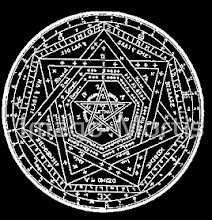Happy Easter
These many professing Christians suppose they are gathering together on Easter to commemorate the anniversary of the precise moment Jesus Christ rose from the dead!
They believe they are celebrating the resurrection.
Easter: The English term, according to the Van. Bede, relates to Eostre, a Teutonic goddess of the rising light of day and spring, which deity, however, is otherwise unknown.... "That the apostolic fathers do not mention it and that we first hear of it principally through the controversy of the Quartodecimans are purely accidental" (The Catholic Encyclopedia, article "Easter," emphasis added).

"Easter: The annual festival observed throughout Christendom in commemoration of the resurrection of Jesus Christ. The name Easter (Ger. Ostern), like the names of the days of the week, is a survival from the old Teutonic mythology[and] is derived from Eostre, or Ostara, the Anglo Saxon goddess of spring, to whom the month answering to our April, and called the 'Eostur-monath,' was dedicated. This month, Bede says, was the same as the Mensis Paschalis [which meant "Passover" month], 'when the old festival was observed with the gladness of a new solemnity.'
"There is no indication of the observance of the Easter festival in the New Testament, or in the writings of the apostolic fathers.
"The first Christians continued to observe the Jewish festivals, though in a new spirit, as commemorations of events which those festivals had foreshadowed. Thus the Passover, with a new conception added to it of Christ as the true paschal lamb and the firstfruits from the dead, continued to be observed, and became the 'Christian Easter'" (The Encyclopedia Britannica, eleventh edition, emphasis added).
They believe they are celebrating the resurrection.
Easter: The English term, according to the Van. Bede, relates to Eostre, a Teutonic goddess of the rising light of day and spring, which deity, however, is otherwise unknown.... "That the apostolic fathers do not mention it and that we first hear of it principally through the controversy of the Quartodecimans are purely accidental" (The Catholic Encyclopedia, article "Easter," emphasis added).

"Easter: The annual festival observed throughout Christendom in commemoration of the resurrection of Jesus Christ. The name Easter (Ger. Ostern), like the names of the days of the week, is a survival from the old Teutonic mythology[and] is derived from Eostre, or Ostara, the Anglo Saxon goddess of spring, to whom the month answering to our April, and called the 'Eostur-monath,' was dedicated. This month, Bede says, was the same as the Mensis Paschalis [which meant "Passover" month], 'when the old festival was observed with the gladness of a new solemnity.'
"There is no indication of the observance of the Easter festival in the New Testament, or in the writings of the apostolic fathers.
"The first Christians continued to observe the Jewish festivals, though in a new spirit, as commemorations of events which those festivals had foreshadowed. Thus the Passover, with a new conception added to it of Christ as the true paschal lamb and the firstfruits from the dead, continued to be observed, and became the 'Christian Easter'" (The Encyclopedia Britannica, eleventh edition, emphasis added).
http://godkind.org/easter.html


